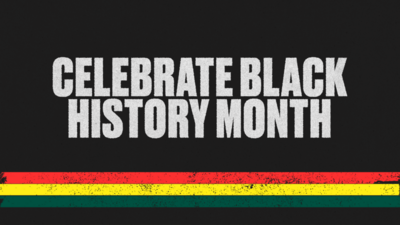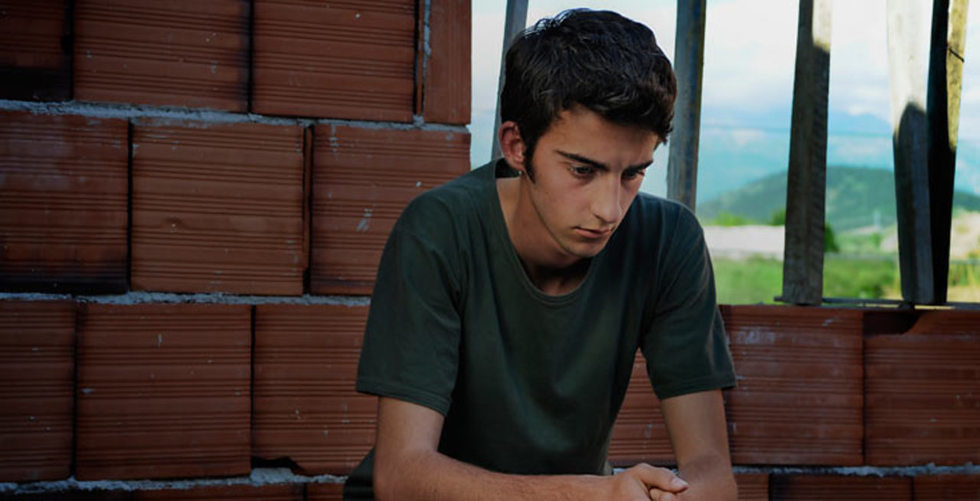
BY ZACHARY WIGON |
The Long Journey to Albania
After 2004’s smash indie hit Maria Full of Grace, Joshua Marston spent seven years making his next film, The Forgiveness of Blood.

It’s been a long, strange trip for Joshua Marston, the sort of trip that incites a bit of head-scratching when you think long and hard about it. In 2004, Marston’s debut feature Maria Full Of Grace was released, to enormous acclaim – it grossed over $6 million domestically, and earned an Oscar nomination for its lead actress, Catalina Sandino Moreno. Awash in rave reviews and the kind of awards-season recognition most indie filmmakers only dream about, Marston had many new avenues open to him. Cut to 2011, and his follow-up feature, a low-budget drama set in Albania, with an entirely Albanian cast, premieres at Berlin. This week, it is released by IFC.
The topic of what happened in that interim period is undoubtedly something of interest, but one must take care not to overlook the product of Marston’s efforts in the process. His new film, The Forgiveness Of Blood, is a lacerating look at the ancient Albanian ritual of blood feuds. Decreed by Albanian cultural norms, a blood feud works as follows: if someone in your family – even an extended family member – kills someone, for whatever reason, you and your family must go into house arrest until the victim’s family forgives you. If you leave your house, you stand the risk that a member of the victim’s family may kill you with impunity.
Marston wisely chooses a teenager – 17-year-old Nik – as the protagonist for this tale, so as to juxtapose the increasingly modern lives of teenagers (lived as much in the digital realm as in the physical environs they inhabit) against the ancient cultural code he must abide by – for Nik’s father kills another man early on in the film, in an episode left unseen. I had the chance to sit down with Marston recently to discuss all this, and more.
 Tribeca: Seven years elapsed between Maria Full Of Grace and The Forgiveness Of Blood. I imagine you were presented with plenty of opportunities to make something more quickly after your previous film, but instead, you pursued making this project for some time. What was that process like?
Tribeca: Seven years elapsed between Maria Full Of Grace and The Forgiveness Of Blood. I imagine you were presented with plenty of opportunities to make something more quickly after your previous film, but instead, you pursued making this project for some time. What was that process like?
Joshua Marston: It’s not like I wasn’t trying to make a movie, and it’s not like I was just saying no to super-commercial offers, although there were some very commercial things that were offered to me. For me, the seven years were about trying to get my own projects made, and being stymied by the fact that there was, time and again, a difference between how the project was valued – in terms of what they thought the budget should be – and how the film was budgeted, how much it would cost to make.
For example, I had a project with Warner Independent about American truck drivers in Iraq. It was going to cost $18 million, but it’s hard to make a film for that budget with a lead who’s 45 – there’s a very short list of A-list actors who can drive that budget, and most of those actors don’t want to spend three months in Jordan for a radical cut in their usual pay.
I wanted to do an adaptation of Jonathan Lethem’s novel, The Fortress Of Solitude, and we wrote a script together and everyone seemed to like it, but I realized too late that movies about kids for an adult audience are a no-go zone, because you can’t populate the film with enough adult names that drive people to go to the theater. It was a period piece and the budget made it a certain number, and we just couldn’t make it work out.
So there was a series of false starts like that. So when I got the idea for this movie in Albania, it was very exciting because I knew I could do it for a small budget, do it quickly, and not be waiting for someone else to say yes to me.

Tribeca: The reason I bring it up is, it says to me that there’s some flaw in the system, when you have a first-time filmmaker make a film as acclaimed as Maria Full Of Grace, and then, not for lack of trying, need seven years to make their next feature.
Joshua Marston: The frustration for me was that after Maria Full Of Grace, a lot of people came to me and said, “We want to be in the Joshua Marston business,” this kind of Hollywood catchphrase: “We want to make a Joshua Marston film.” And I went and wrote a Joshua Marston film, and they loved the script, but by virtue of the budget, they were telling me I needed to cast Mel Gibson or Tom Cruise. To me, that was the contradiction.
Part of me was very resentful that I was being asked to compromise my vision – it was a false statement, that they wanted to make a Joshua Marston film, but that they wanted to do it in a way that was absolutely financially secure, cast with actors who could pre-sell the foreign rights for such an amount that we could make back the budget of the movie before we began filming. That felt false, or disingenuous.
But I think there’s another problem. There’s a way in which the system doesn’t understand these filmmakers, and the filmmakers don’t understand the system. Not that I necessarily would have cast Mel Gibson or Tom Cruise, but I would have been a little less… I would not have been on quite such a high horse with the need for artistic integrity and authenticity. Which is not to say that I would’ve sold out, but the problem is, if you’re a filmmaker who’s made a movie like the one I made, you can drink your own Kool-aid a little too much.

Tribeca: To shift focus to your new film – when you’re doing research on this scale, I wonder, at what point do you realize that you’ve done enough research, you know enough about this foreign culture, to be able to start the writing process?
Joshua Marston: That’s a really good question. You know it when you know it, is the answer. I think there are certain questions that come up, that you say, “Well, I can’t imagine writing until I know this,” and then you find that out, and you figure out what the next thing is that you need to know. A sequence of things happens that makes you feel progressively more comfortable. The real comfort with the subject matter doesn’t come until you finish the film.
I mean, by the time we were ready to cast, I felt very comfortable about blood feuds – I would have conversations with Albanians and realize that I knew the subject better than they did, realize that they had certain clichéd or false understandings. But I didn’t feel comfortable that I understood what it meant to be an Albanian teenager. And we started the casting process – you have to just keep moving forward – and it was not until we finished the casting process, after having auditioned 3,000 kids in 50 schools – that I started to feel comfortable: “Okay, now I have an image of what it means to be an Albanian teenager.” So all those things in the script that I kind of put placeholders in for, I can now rewrite or I can work with the actors on to make that real.
Tribeca: Some of the most resonant sequences in the film are your depictions of utter tedium and boredom, in house arrest. I’m wondering what the visual interest for you was there, and also, if you think the tedium that comes with being under house arrest in a blood feud is complicated by how, due to the current electronic landscape, teenagers are more stimulated today than ever before.
Joshua Marston: I definitely wanted to find a cinematic way to capture a mood that was happening in the house, especially when he was alone, with the thought of – this young guy might not otherwise ever have sat still for this long, and noticed this patch of sunlight crossing the wall. In some respects that’s about boredom, and in some respects it’s about seeing what’s familiar in a new light. But it was also about creating a mood onscreen, and it’s a mood that’s challenging to capture, because you’re trying to find a way to represent boredom without boring the audience.
That’s the central challenge of the film – creating a story about a character who is blocked, and finding avenues for him to act, so that there’s a dramatic progression. Take the scene where Nik defaces the bedroom wall – I knew that in that scene he was turning, going from someone who is upbeat and optimistic to someone who is darker and more destructive, and potentially self-destructive. I was looking for something for him to destroy, and also thinking about prison movies where you see someone with a knife trying to tunnel their way out.

Tribeca: Would you agree with the idea that there’s something increasingly relevant about this kind of tedium in the contemporary landscape?
Joshua Marston: Yeah, I think that’s a really good observation, and I think it’s built into the contrast between the first fifteen minutes of the movie and everything else. In the opening there’s so much chaos, they’re driving through town, they’re playing with the radio, they’re uploading photographs to Facebook – it was intentional that there should be a lot of energy in the opening of the film, in contrast with what’s to come.
One of the strongest images that was most captivating was kids who are stuck in the house due to blood feuds, which are ancient, sending text messages and playing video games. It’s kind of this unbelievable contradiction.
Tribeca: It seemed like a strong metaphor for the idea that perhaps this is something that will fade with a younger generation. Although that may be a naïve observation, since they’ve been around for so long.
Joshua Marston: Well, that’s the question. I get that question after the movie, often. If there are only one or two Albanians in the audience, the more so. An Albanian might feel compelled to thank me for making this portrayal, and then put me on the spot and ask me for my assessment of what the future of Albania is. On the one hand, I’m optimistic – I had one politician tell me the best thing is to invest in new ways of thinking – investing in the Internet and so on. On the other hand, the co-writer of the film said to me, “For 45 years the communist dictatorship told us we were done with blood feuds, since they made them forbidden for 45 years. But as soon as the dictatorship fell, they were back.” And I think it’s true, they’re connected to a very strong sense of honor and pride that is at the heart of Albanian identity.

The Forgiveness Of Blood opens Friday, February 24. Find tickets.
![]() Like The Forgiveness of Blood on Facebook.
Like The Forgiveness of Blood on Facebook.![]() Check into The Forgiveness of Blood on GetGlue.
Check into The Forgiveness of Blood on GetGlue.
Watch the trailer:
